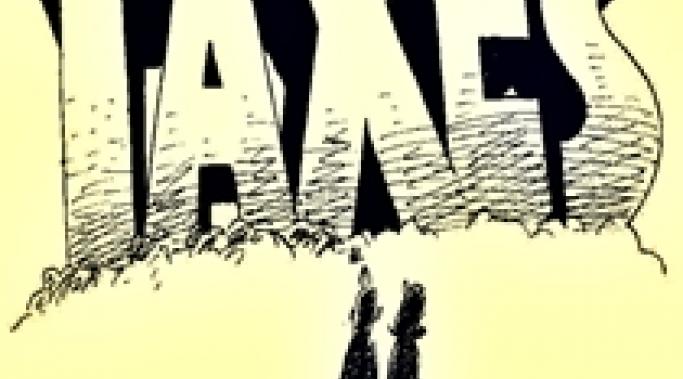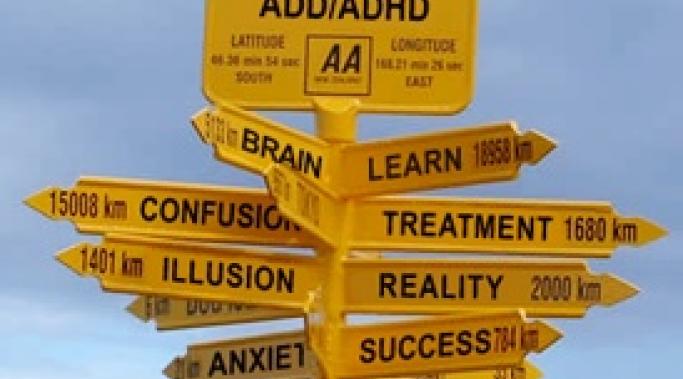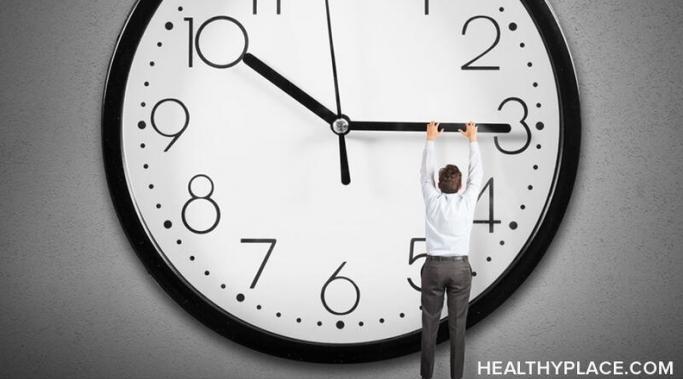Memory problems are not owned by those of us who live with Adult ADHD, but our disorder can certainly exacerbate things. For me, to be frank, my ears don't always work too good! That's why I write, write, write. Taking notes is one of my number one coping mechanisms to accommodate for my lack of auditory endurance - aka I drift off when people are talking and taking notes provides both a way to stay on task and a way to review later what the heck my teachers, friends etc were talking about.
Symptoms of ADHD
It’s that time of the year again…the 90 plus days that are the bane of existence for most adults with ADHD.
Yes, I’m talking about tax season - when all of our best intentions from the year before can either feel like our saving grace or plunge us into weeks of despair. For whatever reason, taxes seem to combine all of the struggles of ADHD into one fell swoop.
Last year, I shared the common experience of “a week with adult ADHD” to show how even the best of intentions can lead to chaos, putting out fires, procrastination and barely making deadlines.
This year, in the midst of tax season, my thoughts turn to the ADHD challenges that make meeting deadlines so difficult to meet.
ADHD doesn't own its signs and symptoms. There is a lot of overlap with other mental health disorders and it's important to tease out whether your X symptoms implies a Y diagnosis, not a Z.
Though I've been clinically diagnosed twice with ADHD and have several of the impulsive/hyperactive as well as inattentive symptoms of the disorder, my new (as of Friday) psychiatrist wants to make sure my ADHD diagnosis is correct. It doesn't feel like he's being skeptical and he wasn't rude in the way other doctors have been. I once had my gynecologist ask why I took Concerta and then tell me I shouldn't be taking it because I'm a woman in my twenties! I think my new doctor wants to do right by me and offer me the best care possible.
Adult ADHD relationships can be troubling at times, especially if you and your partner don’t take ADHD symptoms into account. For instance, in my adult ADHD relationship, we have to plan for change. Change can be difficult for some adults with ADHD. I'm not a spontaneous person and changes to plans really ruffle my feathers.
It’s been a few weeks since the Succeed with ADHD Telesummit and my mind has finally quieted. All those tips and strategies, plus the energy and excitement of the listeners and speakers, had my brain fired up. I wanted to implement everything at once and make changes in my life right away! All those great ideas buzzing in my head, all the ‘I have to do that’, created such noise that I didn’t know where to start.
Often when there is too much, there’s no clear path on what to do and where to go. So I stepped away and focused on other projects. Then last week, I downloaded the recordings and listened to each of the calls again with the goal of choosing one or two strategies that I can do right now (with the plan of listening to the recordings again in a few months for more ideas).
Here are some of the key points and “ahas” I plan to add in my life right now:
Last month I wrote a post about finding the right work to fit with ADHD symptoms. One reader, Jeff, wrote in to state that he found journalism to be a fantastic career for him because there is "lots of variety [and journalism] allows for spontaneous changes in direction throughout the day."
I like Jeff's thinking on this issue because as the DSM IV states, I "often [have] trouble keeping attention on tasks or play activities." So, like Jeff, I prefer a lot of variety in my day as well as some spontaneity.
Recently, I’ve noticed a pattern in my clients that I call the “tipping point”. The “tipping point” is basically a time in people’s lives when, for various reasons, the strategies they have been using to compensate for their ADHD challenges no longer seem to be working. This “tipping point” is often experienced along with feelings of overwhelm and chaos. Up until a “tipping point,” people have been able to balance known or unknown challenges with ADHD with strategies they may not have even realized they were using. Up until the “tipping point”, they had been able to adapt and cope well with their symptoms, even going as far as being under the radar for an official diagnosis of ADHD (in other words their symptoms were not interfering with their functioning). But for some reason a life change – it could be a job promotion, relationship change, a school change, or any myriad of different things – renders the current strategies ineffective and over time there is a sense that things are no longer “going well” and in fact, life seems to be falling apart in a big way.
Admittedly, I'm late. Again. Instead of making an excuse, let's just say that at 40, I'm more aware of my inability to accurately gauge time. It is a symptom of my ADHD, but it is not an excuse. As a kid, I didn't know that I had ADHD, but now that I am aware, a number of events from childhood forward make a lot of sense. I'll share an example and what I have learned as well as how I continue to struggle with timeliness.
I have been so excited about writing for HealthyPlace that I have had trouble focusing on exactly where to begin. Ha! Can you imagine a person with ADHD not being focused? Of course you can! It's a hallmark of the disorder. What may be harder to imagine is a person with ADHD who is so focused that it is, as Dr. Larry Silver notes in an ADDitude article, "...difficult for anyone to 'reach' and interact with a person."
“The most important relationship you will ever have is the one you have with yourself.” Author unknown
Each year, Valentine’s Day seems to draw attention to the notion that love is indeed a mystery. For some, it is a day looked forward to eagerly as they await their chance to acknowledge or be acknowledged by those they love. However, for many people with adult ADHD, their own inner struggle with poor self-worth, lack of self-acceptance and low self-esteem, limits their full appreciation of the abundant love from those around them and for themselves.








